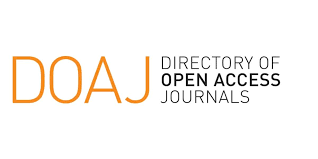Fatalistic beliefs and glycemic control in indigenous women with Type 2 Diabetes Mellitus
DOI:
https://doi.org/10.36881/ma.v3i1.896Keywords:
Type 2 diabetes mellitus, women, beliefs, glycemic control, indigenous populationAbstract
Yoreme Mayo women's triple burden of responsibilities, including housework, caregiving and occupation, reduce time for themselves. Having Type 2 Diabetes Mellitus represents a significant challenge for these women, and fatalistic beliefs may hinder disease control. The objective was to describe Fatalistic Beliefs and glycemic control in Yoreme Mayo women with Type 2 Diabetes Mellitus in Northern Sinaloa. Descriptive-cross-sectional study in 127 Yoreme Mayo indigenous adult women with Diabetes Mellitus Type 2, living in rural areas of the municipality of El Fuerte, Sinaloa. A sociodemographic data questionnaire, the Multidimensional Fatalism Scale, and glycemic control was determined from the HbA1c were used. The mean age was 56.5 years (SD = 8.7) and the mean number of years living in the community was 45.9 years (SD = 17.4). 63.8% reported speaking the Yorem-Noki indigenous language and 75.6% understood it. Of the women, 63.8% did not have glycemic control. In fatalistic beliefs, it was found that more than 60% of the women were in the medium and high levels. In conclusion, Yoreme Mayo women with Type 2 Diabetes Mellitus presented significant levels of fatalistic beliefs and low glycemic control. It is essential to implement educational and intervention programs that not only provide information on diabetes management, but also address and challenge fatalistic beliefs, promoting greater autonomy and control over health among Yoreme Mayo women.
Downloads
References
American Diabetes Association. (2024). Improving care and promoting health in populations: Standards of care in diabetes-2024. Diabetes Care, 47(1), S11-S19. https://doi.org/10.2337/dc24-S001
American Diabetes Association. (2020). Standards of Medical Care in Diabetes-2020 Abridged for Primary Care Providers. Clinical Diabetes, 38(1), 10-38. https://doi.org/10.2337/cd20-as01
Abbott, L., Slate, E., Graven, L., Lemacks, J., & Grant, J. (2021). Fatalism, Social Support and Self-Management Perceptions among Rural African Americans Living with Diabetes and Pre-Diabetes. Nursing reports (Pavia, Italy), 11(2), 242-252. https://doi.org/10.3390/nursrep11020024
Apodaca-Orozco, G. U. G., Calvario-Parra, J. E., & Gómez-Rodríguez, G. A. (2023). Barreras estructurales para el acceso a una educación sexual integral desde el cuidado de la salud de jornaleras agrícolas Yoreme-Mayo. Yachay-Revista Científico Cultural, 12(1), 31-40. https://revistas.uandina.edu.pe/index.php/Yachay/article/view/671
Basto-Abreu, A., López-Olmedo, N., Rojas-Martínez, R., et al. (2021). Prevalencia de diabetes y control de glucemia en México: resultados nacionales 2018 y 2020. Salud Publica Mex, 63(6), 725-733. https://www.medigraphic.com/cgi-bin/new/resumenI.cgi?IDARTICULO=102603
Berardi, V., Bellettiere, J., Nativ, O., Ladislav, S., Hovell, M. F., & Baron-Epel, O. (2016). Fatalism, Diabetes Management Outcomes, and the Role of Religiosity. Journal of religion and health, 55(2), 602-617. https://doi.org/10.1007/s10943-015-0067-9
Buichia-Sombra, F. G., Dórame-López, N. A., Miranda-Félix, P. E., Castro-Juarez, A. A., & Esparza-Romero, J. (2020). Prevalencia y factores asociados a diabetes mellitus tipo 2 en población indígena de México: revisión sistemática [Prevalence and factors associated with type 2 diabetes mellitus in the indigenous population of Mexico: systematic review]. Revista médica del Instituto Mexicano del Seguro Social, 58(3), 317-327. https://doi.org/10.24875/RMIMSS.M20000036
Cohen, J. (2013). Statistical power analysis for the behavioral sciences. Academic Press.
Cruz-Sánchez, M., & Cruz-Arceo, M. D. L. Á. (2020). El significado de la diabetes mellitus entre indígenas chontales de Tabasco, México. Población y Salud en Mesoamérica, 18(1), 149-175. https://www.scielo.sa.cr/scielo.php?pid=S1659-02012020000200149&script=sci_arttext
Esparza, O. A., Wiebe, J. S., & Quiñones, J. (2015). Simultaneous Development of a Multidimensional Fatalism Measure in English and Spanish. Current Psychology, 34(4), 597-612. https://doi.org/10.1007/s12144-014-9272-z
Esparza-Del Villar, Ó. A., Quiñonez-Soto, J., & Carrillo-Saucedo, I. C. (2010). Propiedades psicométricas de la Escala Multidimensional de Fatalismo y su relación con comportamientos de la salud. Colección de textos Universitarios, Chihuahua, México.
Grove, S. K., & Gray, J. R. (2019) Investigación en enfermería: Desarrollo de la práctica enfermera basada en la evidencia. (7a ed.). McGraw-Hill Interamericana.
Hag-Hamed, D., & Daniel, M. (2019). The influence of fatalistic beliefs on health beliefs among diabetics in Khartoum, Sudan: a comparison between Coptic Christians and Sunni Muslims. Global health promotion, 26(3), 15-22. https://doi.org/10.1177/1757975917715884
Instituto Nacional de Estadística y Geografía. (2022). Estadísticas a propósito del día internacional de los pueblos indígenas. https://www.inegi.org.mx/contenidos/saladeprensa/aproposito/2022/EAP_PueblosInd22.pdf
Instituto Nacional de los Pueblos Indígenas. (2017). Etnografía del pueblo mayo de Sinaloa y Sonora (yoremes). https://www.gob.mx/inpi/articulos/etnografia-de-los-mayos-de-sonora
International Diabetes Federation. (2021). IDF Diabetes Atlas, 10th edition. https://diabetesatlas.org/atlas/tenth-edition/
International Diabetes Federation. (2022). Diabetes among Indigenous Peoples. https://diabetesatlas.org/atlas/indigenous-2022/?dlmodal=active&dlsrc=https%3A%2F%2Fdiabetesatlas.org%2Fidfawp%2Fresource-files%2F2022%2F12%2FIDF-Indigenous-Peoples-Report.pdf&dlmodal=active&dlsrc=https%3A%2F%2Fdiabetesatlas.org%2Fidfawp%2Fresource-files%2F2022%2F12%2FIDF-Indigenous-Peoples-Report.pdf
López-Sánchez, O., & Nance, D. C. (2020). "Something Born of the Heart": Culturally Affiliated Illnesses of Older Adults in Oaxaca. Issues in mental health nursing, 41(3), 235-242. https://doi.org/10.1080/01612840.2019.1650854
Martínez-Salomón, E. (2021). La mujer Yoreme Mayo y el patrimonio cultural en el contexto de la comunidad indígena de San Miguel Zapotitlán, Ahome, Sinaloa, México. Conjeturas Sociológicas, 9(25), 164-204. https://revistas.ues.edu.sv/index.php/conjsociologicas/article/view/1765
Mendoza-Catalán, G., Figueroa-Perea, J. G., Gallegos-Cabriales, E. C., Salazar-González, B. C., Onofre-Rodríguez, D. J., & González-Ramírez, J. (2023). Fatalistic beliefs, self-care, and HbA1c in Mexican men with type 2 diabetes mellitus: A cross-sectional study. Medicine, 102(31), e34594. https://doi.org/10.1097/MD.0000000000034594
Mendoza Catalán, G., Juárez Medina, L., Pimentel Jaimes, J. A., Higuera Sainz, J. L., & Gutiérrez Valverde, J. M. (2017). Barreras socioculturales en el manejo de la diabetes en hombres de origen mexicano: revisión sistemática. Nure Investigación, 14(91), 1-10. https://dialnet.unirioja.es/servlet/articulo?codigo=6279754
Moreira, T., Hernandez, D. C., Scott, C. W., Murillo, R., Vaughan, E. M., & Johnston, C. A. (2018). Susto, Coraje, y Fatalismo: Cultural-Bound Beliefs and the Treatment of Diabetes Among Socioeconomically Disadvantaged Hispanics. American journal of lifestyle medicine, 12(1), 30-33. https://doi.org/10.1177/1559827617736506
Ramírez, A. S., & Arellano Carmona, K. (2018). Beyond fatalism: Information overload as a mechanism to understand health disparities. Social science & medicine (1982), 219, 11–18. https://doi.org/10.1016/j.socscimed.2018.10.006
Ramírez-Jaime, L. E., Buichia-Sombra, F. G., García-Sarmiento, J. L., Miranda-Cota, G. A., & Miranda-Félix, P. E. (2021). Revisión sistemática de la relación entre fatalismo y control glucémico en adultos con diabetes tipo 2. Revista de Enfermería del Instituto Mexicano del Seguro Social, 29(1), 27-34. https://revistaenfermeria.imss.gob.mx/editorial/index.php/revista_enfermeria/article/view/1149
Salazar-Collier, C. L., Reininger, B. M., Wilkinson, A. V., & Kelder, S. H. (2021). Exploration of Fatalism and Religiosity by Gender and Varying Levels of Engagement Among Mexican-American Adults of a Type 2 Diabetes Management Program. Frontiers in public health, 9, 652202. https://doi.org/10.3389/fpubh.2021.652202
Secretaría de Salud (2014). Reglamento del a ley general de salud en material de investigación para la salud en México, D.F. Diario Oficial de la Federación. http://www.diputados.gob.mx/LeyesBiblio/regley/Reg_LGS_MIS.pdf
Secretaría de Salud. (2010). Norma Oficial Mexicana NOM-015-SSA2-2010, Para la prevención, tratamiento y control de la diabetes mellitus: Diario Oficial de la Federación. http://www.spps.gob.mx/images/stories/SPPS/Docs/nom/NOM-015-SSA2-2010.pdf
Sukkarieh-Haraty, O., Egede, L. E., Abi Kharma, J., & Bassil, M. (2019). Diabetes fatalism and its emotional distress subscale are independent predictors of glycemic control among Lebanese patients with type 2 diabetes. Ethnicity & health, 24(7), 767-778. https://doi.org/10.1080/13557858.2017.1373075
United Nations. (2022). Who are Indigenous peoples? Factsheet: United Nations Permanent Forum on Indigenous Issues. https://www.un.org/development/desa/indigenouspeoples/unpfii-sessions-2.htm
Villanueva-Borbolla, M.Á., Pernia, A., Campos Rivera, M. (2024). Determinación social de la obesidad, la diabetes y la hipertensión arterial desde las narrativas de mujeres de una comunidad indígena en el sur de Morelos, México. Global Health Promotion, 31(2), 59-69. https://doi.org/10.1177/17579759231211232
Waapalaneexkweew (Nicole R. Bowman-Farrell, M). (2018). Looking Backward but Moving Forward: Honoring the Sacred and Asserting the Sovereign in Indigenous Evaluation. American Journal of Evaluation, 39(4), 543-568. https://doi.org/10.1177/1098214018790412
World Health Organization. (2023). Diabetes. https://www.who.int/es/news-room/fact-sheets/detail/diabetes
Downloads
Published
How to Cite
Issue
Section
Categories
License

This work is licensed under a Creative Commons Attribution 4.0 International License.
The content of the publications is the responsibility of the authors. The journal allows authors to maintain copyright on published articles and documents. The license used is Commons Attribution-NonCommercial International License. CC BY NC

















